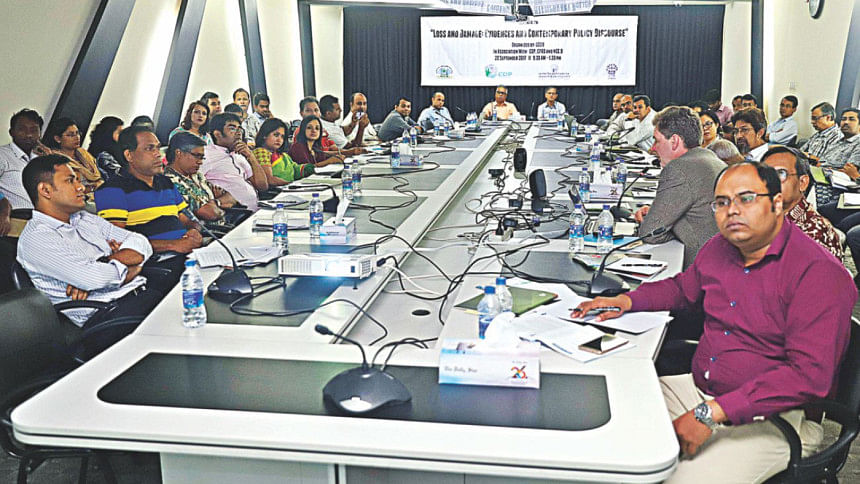Coastal fishermen see the impacts

Climate change impacts have largely affected the livelihood of fishermen along the country's southern coast, deteriorating their financial conditions and forcing them to migrate to urban areas, according to a recent study.
Frequent natural calamities, especially cyclone, compelled the fishermen to reduce fishing trips, while a rise in temperature and salinity decreased fish reserves near the mainland in recent years for which they had to travel further into deep sea to find fish, it said.
The Christian Commission for Development in Bangladesh (CCDB) conducted the study, from June 2016 to July 2017, by surveying economic and non-economic climate-induced loss of 68 fishermen in two southern upazilas -- Patharghata of Barguna and Cox's Bazar Sadar.
The findings were unveiled yesterday at a seminar organised by CCDB in association with Coastal Development Program (CPD), Centre for Participatory Research and Development (CPRD) and Network on Climate Change in Bangladesh (NCC'B) at the capital's The Daily Star Centre.
About 59 percent of the fishermen in the upazilas had to abandon their fishing trips for three to four times during the last one year due to cyclone warning, the study said.
Apart from the loss of fishing, the unfinished trips damaged logistics worth Tk 3,047 per fisherman in every seven-day trip, it said.
With fish stocks dwindling near the shore, the fishermen had to travel 10 to 15 hours more towards the deep sea, the study added.
Revealing the findings, researcher Habib Torikul said that as their financial condition deteriorated, the fishermen lent money from local lenders. “And at some point, they had to change their profession and migrate to the urban areas,” he said.
The fishermen also had to suffer from different non-economic loss and damage like death, physical and psychological wounds, deprivation of their children's education, and poor social status, said Habib, also the documentation officer of CCDB.
The study recommended finding alternative livelihood options or employment opportunities for these fishing families, and developing new fishing technologies to help them adapt to climate change impacts.
It also called for strengthening the government's social safety-net programmes and ensuring proper management of existing ones.
Speaking as chief guest, climate expert Prof Ainun Nishat said the authorities should focus on capacity building and food production to ensure adaptation and mitigation measures.
At the same time, the government has to strengthen lobbying to earn compensation from the industrialised countries which are mainly responsible for climate change, he said.
“The loss and damage triggered by climate change would continue to increase, no matter whether the global temperature rises by two or four degrees Celsius,” said Ainun Nishat, professor emeritus of Brac University.
Joyanta Adhikari, executive director of CCDB; Dr Fazle Rabbi Sadeque Ahmed, a director of Palli Karma-Sahayak Foundation (PKSF); Hafijul Islam Khan, executive director of Centre for Climate Justice-Bangladesh; Thomas Hirsch, executive director of Germany-based Climate and Development Advice, and Md Shamsuddoha, chief executive of CPRD, also spoke among others.

 For all latest news, follow The Daily Star's Google News channel.
For all latest news, follow The Daily Star's Google News channel. 



Comments